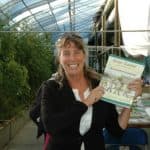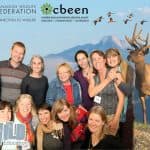Environmental Inquiry Institute
How do you make authentic environmental inquiry learning work?
In October, 45 educators gathered at Groundswell Network Society’s inspiring Community Greenhouse and discovered how to make inquiry-based teaching and learning come alive within their classrooms and communities.
This Institute was brought to our region through a partnership between Learning for a Sustainable Future, Natural Curiosity, School District #6, CBEEN and Groundswell Network Society, with generous support from Columbia Basin Trust (CBT) and Copper Point Resort.
CBEEN was able to support 10 of our members in attending the Institute. Click on the following links for resources and see the words of wisdom from participants below:
Natural Curiosity: Building Children’s Understanding of the World Through Environmental Inquiry
Resources for Rethinking: Exemplary classroom resources reviewed by teachers for teachers
CBEEN Teaching Resources webpage
Story – What do you do with an idea?
Story – City dog, Country frog

“I learned important key concepts for building an inquiry based environment in my classroom. From small changes that I can implement right away, to larger term-based projects, the institute has given me the confidence to use more inquiry based learning with my students. Specific examples proved that inquiry-based learning can range in size and scope, and fits perfectly with environmental education programs. Furthermore, I learned how to blend learning about the environment to other less obvious subjects such as Math and French. The institute was conducted using inquiry-based concepts and lessons, which in turn strengthened the learning.” – Jennifer Heath, Fernie
The Inquiry Institute was amazing! The inquiry process was modeled through the facilitation of the two days. Some key learning pieces for me: inquiry supports the integration of curricular areas and the big ideas laid out by the BC Ed. Plan, inquiry begins with a provocation and is supported through knowledge building circles (KBCs) and place-consciousness can be supported and developed through the inquiry process. – Kristie Crowe, Nelson
Inquiry learning builds on techniques environmental educators regularly use in their practice – using leading questions to pique kid’s interest and connect them to the topic. Inquiry learning is flexible – the approach can be used in short blocks of defined time or as a guiding principle for an entire program/term. EE programs can be used to support a teacher’s inquiry learning in the classroom in a variety of ways: a field trip could trigger or initiate the inquiry learning process, presentations can help inquiry learners build knowledge and skills related to their topic, we can answer questions and pose them too, and we can help students apply their knowledge and skills beyond the school. – Lorri Horrocks, Invermere
Activities that happen outside can lend themselves to starting points to inspire inquiry projects in the classroom. It can be a rich mulit curriculum approach that encourage critical thinking skills. It was wonderful to meet other teachers like me who have similar passions and look at how we can better improve our teachings. It was valuable to talk about assessment how it works in the inquiry model. – Kate Ruoss, Cranbrook
“The Inquiry instituted was beautifully facilitated. We learned about and how to employ Inquiry-based Learning Methods by actually following the same process ourselves, with each participant work-shopping their own project ideas. More specifically I was able to tease out practices and techniques in facilitating student-directed inquiry as a Community Educator, which will be incredibly valuable knowledge as the WVFK program adapts to the changing BC Curriculum. Ultimately the workshop reminded us of and empowered us in our role as the facilitators of a child’s learning. Inquiry learning can take many forms, short or long-term. It is made possible by the receptivity of the educator, the willingness to take a risk in addressing questions with no clear answers and projects with no clear outcomes, and in making necessary adaptations to mistakes or new findings. Even in our role as educators, we are too students in classroom inquiry.” – Sonja Seher, Kimberley






